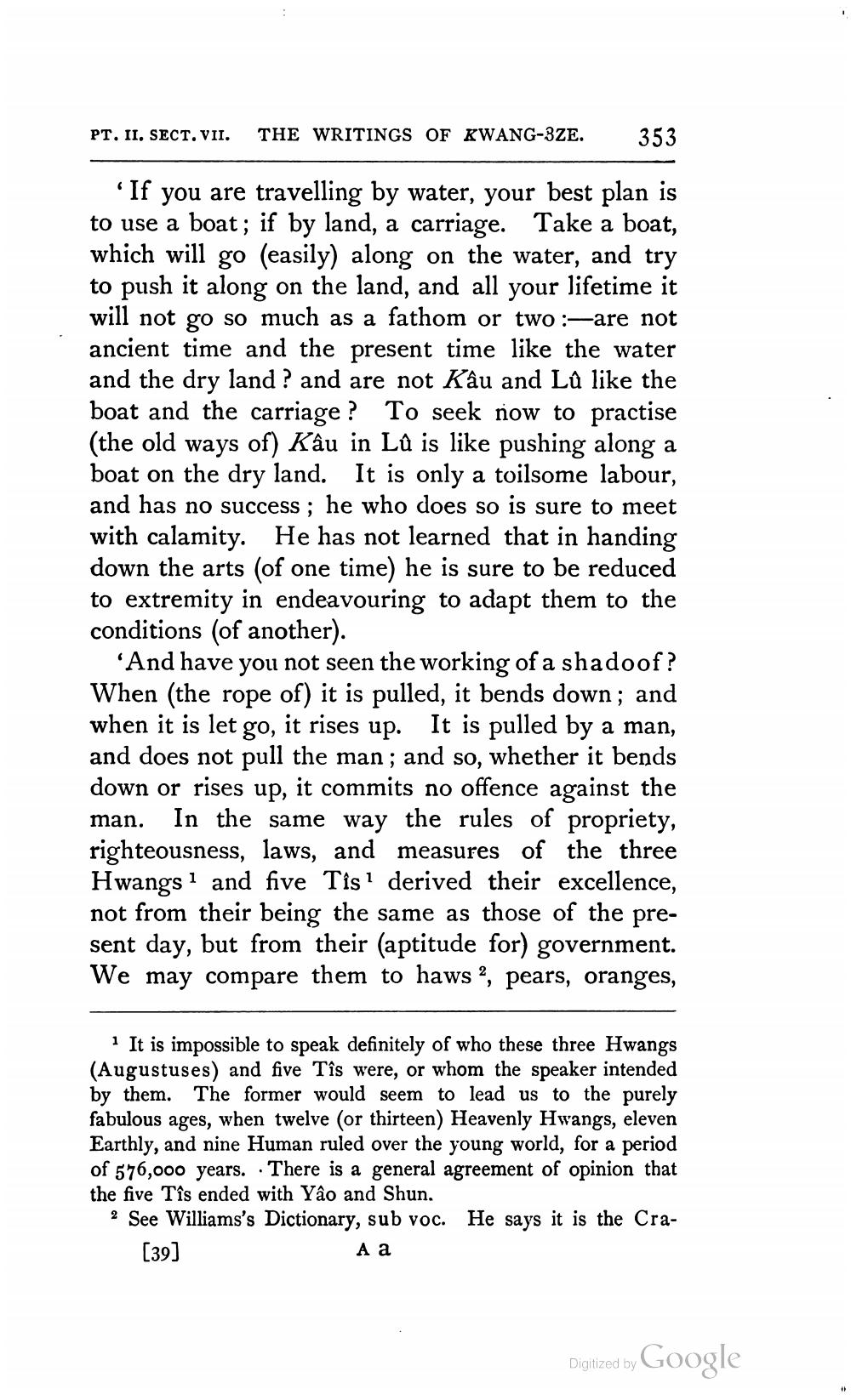________________
PT. II. SECT. VII.
THE WRITINGS OF KWANG-SZE.
35
'If you are travelling by water, your best plan is to use a boat; if by land, a carriage. Take a boat, which will go (easily) along on the water, and try to push it along on the land, and all your lifetime it will not go so much as a fathom or two are not ancient time and the present time like the water and the dry land ? and are not Kâu and Lû like the boat and the carriage ? To seek now to practise (the old ways of) Kâu in Lû is like pushing along a boat on the dry land. It is only a toilsome labour, and has no success; he who does so is sure to meet with calamity. He has not learned that in handing down the arts (of one time) he is sure to be reduced to extremity in endeavouring to adapt them to the conditions (of another).
'And have you not seen the working of a shadoof? When the rope of) it is pulled, it bends down; and when it is let go, it rises up. It is pulled by a man, and does not pull the man; and so, whether it bends down or rises up, it commits no offence against the man. In the same way the rules of propriety, righteousness, laws, and measures of the three Hwangs 1 and five Tis 1 derived their excellence, not from their being the same as those of the present day, but from their (aptitude for) government. We may compare them to haws ?, pears, oranges,
1 It is impossible to speak definitely of who these three Hwangs (Augustuses) and five Tîs were, or whom the speaker intended by them. The former would seem to lead us to the purely fabulous ages, when twelve (or thirteen) Heavenly Hwangs, eleven Earthly, and nine Human ruled over the young world, for a period of 576,000 years. There is a general agreement of opinion that the five Tîs ended with Yâo and Shun. 2 See Williams's Dictionary, sub voc. He says it is the Cra[39]
A a
Digitized by Google




